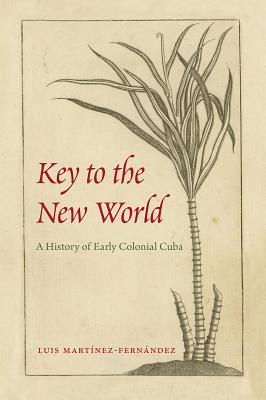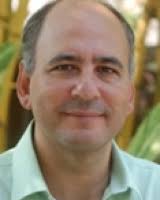

 University of Florida Press
University of Florida Press
Key to the New World: A History of Early Colonial Cuba


Key Metrics
- Luis Mart�nez-Fern�ndez
- University of Florida Press
- Hardcover
- 9781683400325
- 9.02 X 5.98 X 0.69 inches
- 1.15 pounds
- History > Caribbean & West Indies - Cuba
- English
 Secure Transaction
Secure TransactionBook Description
Scholarly and popular attention tends to focus heavily on Cuba's recent history: its notoriety as the world's largest exporter of sugar and the Western hemisphere's first socialist nation. Key to the New World is the first comprehensive history of early colonial Cuba written in English and fills the gap in our knowledge of the island before 1700.
Luis Mart�nez-Fern�ndez presents a holistic portrait of the island nation that interrelates geography, economy, society, politics, and culture and weaves these threads into a narrative that begins with the first arrival of indigenous people around 7,000 years ago. He chronicles the conquest and establishment of colonial rule and how the island's geographic uniqueness made it an ideal launching pad for Spanish conquests into Central America, Mexico, and Florida. While considering the role of Cuba and the Caribbean as a theater for European power struggles, he focuses intimately on the people who both influenced and were influenced by these larger, impersonal forces.
Developing the theme of Two Cubas, Mart�nez-Fern�ndez explores the differences between the urban, official, and mercantilist Havana and the eastern frontier, which is rural, remote, relaxed, and rebellious. As colonial society emerges on the island, he highlights the asymmetrical interactions among whites, blacks, mulattos, Amerindians, and mestizos; the people who challenged the conflicting and overlapping social structures and hierarchies; and the cultural by-products of multiethnicity. He brings to life the different characters in the story of Cuba that are emblematic of creolization and transculturation in religion, food and diet, and music. He also discusses the rise of the sugar plantation as a socioeconomic engine and its reliance on the expansion of African slavery, as well as slave and free black resistance to the system.
In these often-overlooked centuries, Mart�nez-Fern�ndez finds the roots of many of Cuba's enduring economic, political, social, and cultural complexities. The result is a sweeping history, a seminal text that makes clear that to fully grasp revolutionary or contemporary Cuba we must first understand what came before.
Author Bio
Dr. Luis Martínez-Fernández is a historian, university professor, author, consultant and public speaker, whose fields of expertise include Latin America, the Caribbean, education, and Latino / Hispanic politics, culture, and society.
Born in Havana, Cuba and raised in Lima, Peru and San Juan, Puerto Rico, he holds B.A. and M.A. degrees in History from the University of Puerto Rico and a Ph.D. in History from Duke University.
He is recognized as one of the most prolific and influential scholars in the field of Caribbean Studies. His publications include articles in Cuban Studies, Slavery and Abolition, Latin American Research Review, The Americas, Caribbean Studies, History Today, and in numerous anthologies and edited volumes.
His books include: Fighting Slavery in the Caribbean, Revolutionary Cuba: A History, widely acclaimed as the most comprehensive and systematic study on the subject ever written, and Key to the New World: A History of Early Colonial Cuba, winner of the 2018 Florida Book Awards' Bronze Medal for Nonfiction and the 2019 International Latino Book Awards Gold Medal for History.
Martínez-Fernández served as trustee of the College Board (2009-2015) and in numerous professional, editorial, and community boards, among them the Cuban Studies journal, the South Atlantic Humanities Center, the Community Advisory Board of WMFE (Central Florida's NPR station), and the Executive Committee of the Board of Directors of the Historical Society of Central Florida. In 2005 he founded the annual Latin American Cultural Festival of Orlando.
In March 2019, he joined the Board of Directors of the National Council for History Education and assumed the role of Board Secretary. He also serves on the International Board of Advisors of United Planet.
He writes a weekly nationally syndicated column for Creators Syndicate.
Research Interests
Latin America, the Caribbean, Cuba and Puerto Rico, Latinos in the United States
Education
Ph.D. in Latin American History from Duke University (1990)
M.A. in History from University of Puerto Rico (1985)
B.A. in History from University of Puerto Rico (1982)
Source: University of Central Florida
Videos
No Videos
Community reviews
Write a ReviewNo Community reviews